Donald Rumsfeld Solitaire is a quagmire. I’m sorry. I’m not trying to be clever; the overwhelming challenge in discussing Donald Rumsfeld Solitaire is to avoid being clever. The fact remains that even thinking about Donald Rumsfeld Solitaire is a quagmire. Playing it is worse.
Technically the name of Donald Rumsfeld‘s app is “Churchill Solitaire”. But no American is going to call it that. If Lleyton Hewitt put out a game called Rod Laver Hold ‘Em, would anyone call it Rod Laver Hold ‘Em? It would be ‘the Lleyton Hewitt poker game’.
Solitaire is a game built around creating a mess and then trying to work your way through the mess to an orderly resolution, which may be impossible. Of all the activities in the world to build a game app around, US politician Donald Rumsfeld chose this one.
Not only that, he chose to build a game around a solitaire variation that uses 104 cards, not 52 — a whole extra deck, to make the complications that much more intractable. There is an extra row of cards above the regular play area, to divide your attention. A second front. That’s what it is.
It begins to feel almost as if “Donald Rumsfeld’s Winston Churchill’s Call of Duty” would have been less awkward. This is how Rumsfeld himself described the game, in a developer essay on Medium:
It’s a card game that can frustrate even the most skilled player because a single move can make or break an entire game. A number of hands are simply unwinnable. But the most steadfast players will gamely soldier on to find their way to victory.
The reader with an interest in history or foreign policy may go back and forth between those second and third sentences for a while. Then one immediately moves on to an aphorism Rumsfeld attributes to the Belgian diplomat Andre de Staercke, who he says taught this particular card game to both the British Prime Minister and the American defence secretary:
“What one needs in life are the pessimism of intelligence and the optimism of will.”
“The Optimism of Will” would be a good title for a retrospective look at Donald Rumsfeld’s career as a military strategist. But despite Rumsfeld, we are here to play a card game, on a mobile device, or to try to.

The game opens by forcing your phone into landscape mode and unspooling black and white archival motion pictures from the events of a war that killed 60 million people, to set a mood. If you haven’t turned down the volume, Churchill’s words to a desperate nation play in the background. “We shall never surrender!” Churchill says. (“Optimism” does not exactly describe the tone.)
There is a framing conceit about how, as you advance through the levels of the game, you will follow the progress of Churchill’s life, starting as a cadet at the Royal Military College at Sandhurst and ending up, presumably, as UK Prime Minister. Perhaps along the way you herd the Boers into camps. Focus on the present, though.
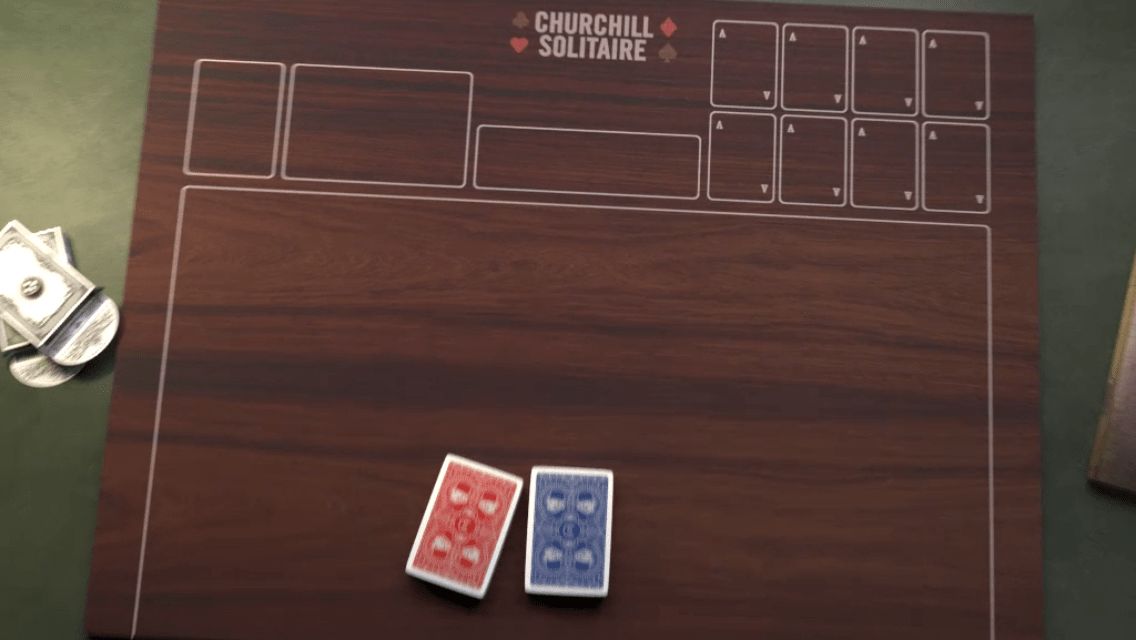
If you are playing the free trial version, you choose one of three deals: Easy, Medium or Hard. The cards are laid out in 10 columns, in stacks ranging from one card at each end to five cards in the middle columns. The top cards are face-up, as in ordinary solitaire. Six more cards are face-up and overlapping in a sort of holding pen at the top. The goal is the usual: Build columns of alternating red and black, in order from kings on down, while clearing away cards to the top by suit, from aces on up.
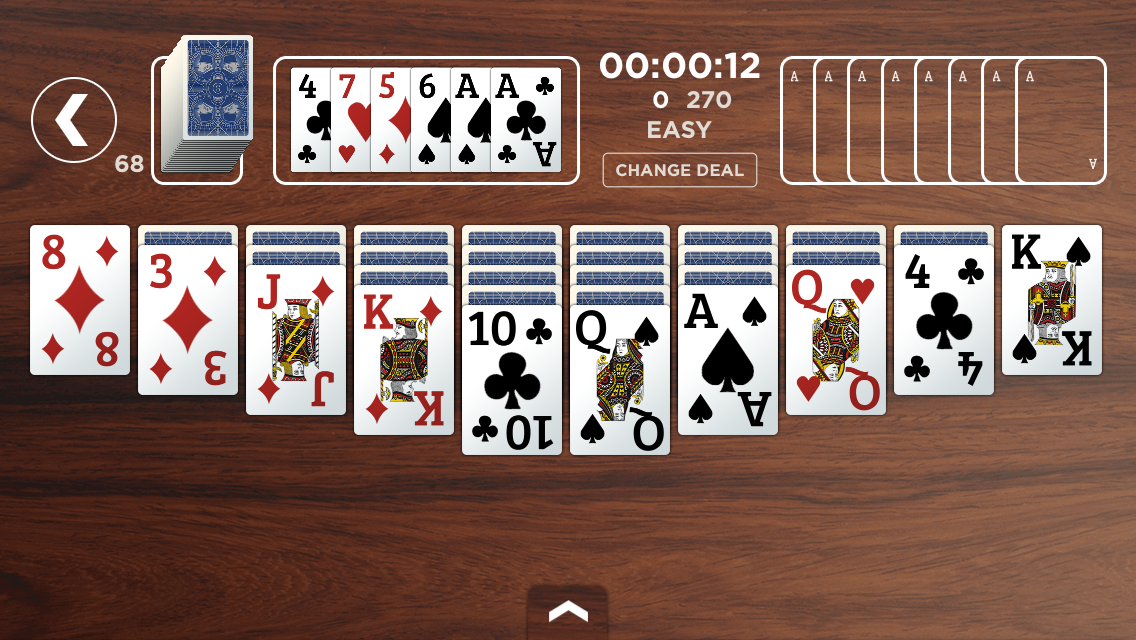
Who puts a time-waster game in forced landscape? Computer solitaire exists to be played with half your supply of hands, using half your supply of brain. But this is a man who made a big deal out of his preference for working at a standing desk. Donald Rumsfeld has his own theories about how things are done.
Some of those theories are contrary to the generally understood theory and practice of solitaire. Thus the Life of Winston Churchill conceit. Ordinary Solitaire is about the void, the easy flow state. But Donald Rumsfeld offers nothing but endless, intrusive context. His version of the game is set up for timing, scoring, advancement. If you take your eye off the screen for too long — say, to attend to some actual business on another device — Rumsfeld Solitaire throws a nagging dialog box at you.
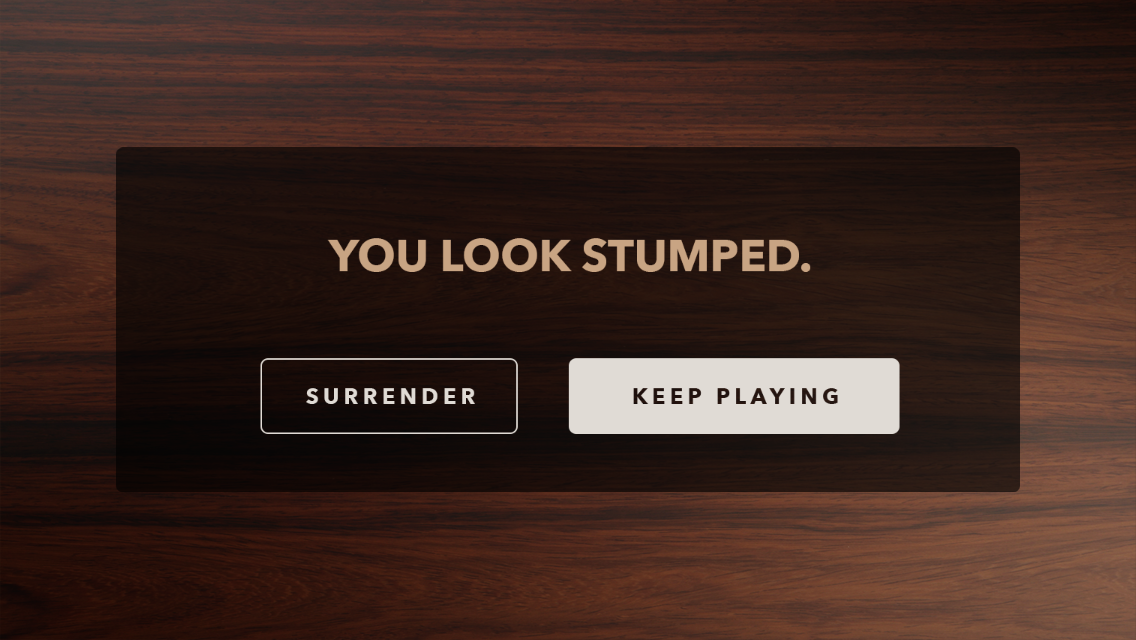
When the game gets out of your face and lets you play, it mostly feels like any other kind of solitaire, only slower and more frustrating. Besides the double deck and the extra cards at the top — the “Devil’s Six”, in the game jargon — the other distinctive feature is that when you call for fresh cards, the new ones are dumped on top of the columns you’re working on. You can’t go back to building on the progress you’ve made till you clean up the latest crisis in the foreground.
The other obstacle to building your columns is that they don’t really fit on the phone screen. Shortly into my first game, Rumsfeld Solitaire warned me that I was getting too close to the edge, and advised me to rotate my device to get more room.
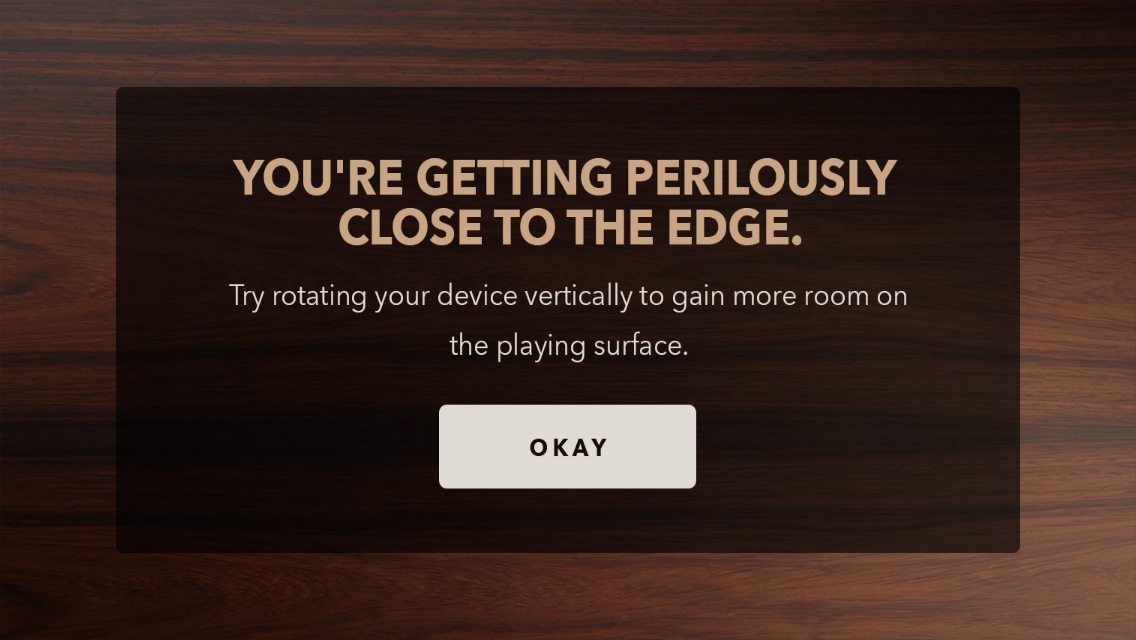
It was Rumsfeld Solitaire, of course, that had chosen to put the phone in horizontal layout in the first place. I tried to rotate the phone back to vertical, and I couldn’t — I’d had my iPhone rotation-locked on portrait to begin with, so when the game commandeered things, it locked it on landscape.
When I tried to pull up the phone’s menu to unlock it, I discovered that Rumsfeld Solitaire had put a pull-up help menu for the game in that same spot. Eventually I gave up on trying to summon the phone menu and kept playing with the cards dangling off the screen — till at some point, as I fumbled at them, I accidentally launched the phone menu I’d wanted in the first place, so I could unlock the rotation.
On switching to the vertical layout, I found that the way Rumsfeld Solitaire fits the 10 columns of cards into the narrow screen is by shrinking them. Donald Rumsfeld, as he wrote in his developer’s note, is 83 years old. My eyes are 39 years younger than that, but they’re already old enough that it’s hard to focus them on an image of a playing card one-tenth the width of an iPhone.
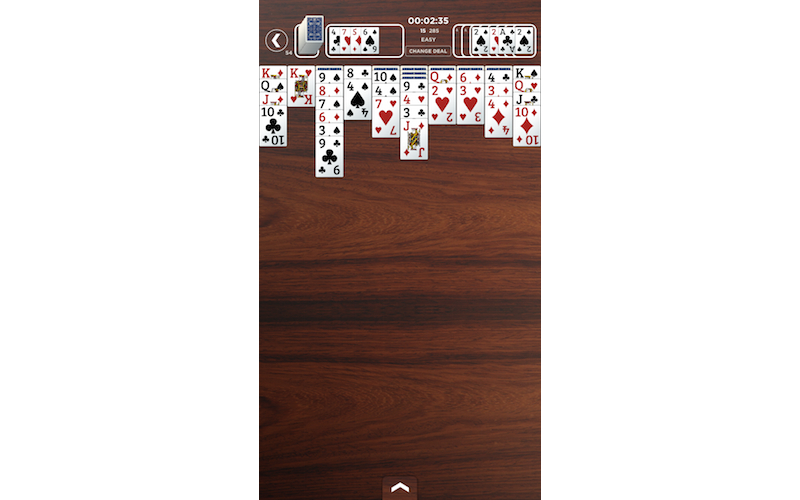
“I’ve signed off on something they call ‘UX’,” Rumsfeld wrote on Medium. Maybe he played it on a tablet.
Still, a fundamental error of design wasn’t going to stop me. I played on, itty-bitty cards and all, and as I did so, an understated fact about the game became clear: It’s rigged.
It has to be, by design. There are difficulty levels. The only way to set a solitaire game at different levels of difficulty is to stack the deck. The Sandhurst Cadet, tapping away at the screen, is following a script imposed from above.
That fact was palpable, as the easy game progressed. The right cards showed up to get it off to a good start, then things slowed down. For a moment, it looked like the columns might never get untangled — and then, suddenly, the needed cards began to appear, and everything fell into place till the last obstacle was gone, at which point a dialog box offered to autocomplete the game. (This confirmed that Donald Rumsfeld and his team do not, on the most basic level, approach video solitaire the way I do.)
The sales proposition behind the game is that by paying money, you unlock more different prearranged decks — or, if you choose, you can buy access to an option that will give you an actual random shuffle. The proceeds go to charity. I stuck with the free deals.
On medium difficulty, I began to wonder more acutely why one would choose to make a game of solitaire that required twice as much card-moving as normal. I got stuck, and between boredom and eyestrain and the knowledge that the deck was stacked, I gave up and just advanced to the hard setting.
The hard setting was hard. A stubborn pileup of black 10s developed on the right-hand side, with no good way to clear them. Deep into the game, only seven of the eight aces I needed had turned up. I burned through the whole deck and futilely asked for a hint. “You may be out of luck,” the game said.
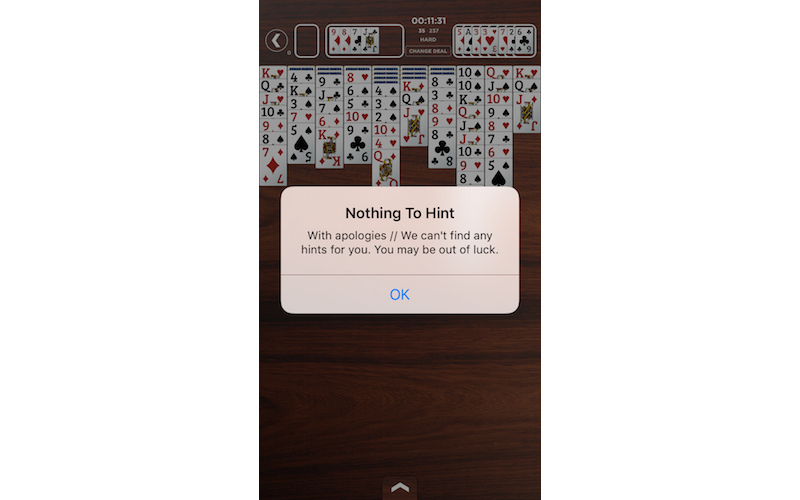
So I tried it again. I knew it was set up for failure, and I tried it again anyway. This time I made intentionally wrongheaded plays, refusing to slide a king up into an empty column, hoping that an arbitrary change in tactics could shift the underlying balance to something marginally less unfavourable. Even so, I ended up blundering into the same dead ends. The only way out was to spend more time, or start spending money, on something that was never really going to work out. I put down the phone and went away.
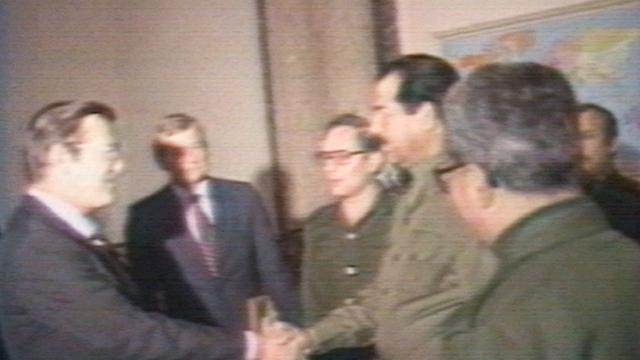
Comments
One response to “Donald Rumsfeld’s Solitaire Game Puts Futility At Your Fingertips”
i know more about churchill than rumsfeld so id call it churchill solitare as i would 100% call it Rod Laver solitaire, because thats the name, same as i dont call fallout, bethesda post apocalyptic game.
this looks pretty interesting though, had my phone not decided to become a brick today id be all over this, wasting my day away.